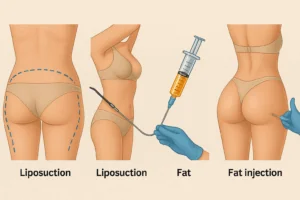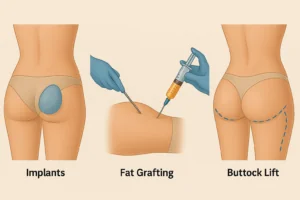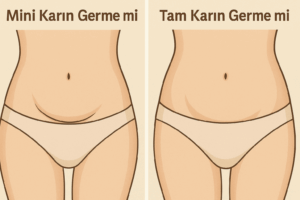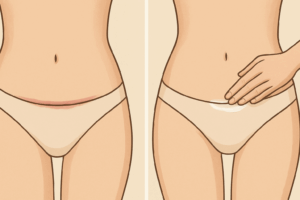Losing weight is a challenging journey for many people. Losing and maintaining a healthy weight positively affects not only our physical appearance, but also our overall health and quality of life. In this article, we will take a detailed look at effective weight loss strategies recommended by nutrition and diet experts.
-
Calorie Balance: Basic Principle
At the heart of weight loss is a simple mathematical balance: You must take in fewer calories than you expend. This allows your body to use its fat stores. But achieving this balance is not as easy as it sounds.
First, you should determine your daily calorie needs. This varies depending on your age, gender, height, weight and activity level. A nutritionist or online calorie calculators can help you with this.
Once you have determined your daily calorie needs, it is recommended to cut 500-750 calories from this amount to lose weight. This results in a weight loss of about 0.5-1 kg per week, which is a healthy and sustainable pace.
But remember, very low-calorie diets (under 1200 calories a day) can damage your health in the long run and slow down your metabolism. The goal is to lose weight slowly and steadily, not to put your body into "starvation mode".
-
Balance of Food Groups
Just counting calories is not enough. The source of your calories is also important. A balanced diet should include all food groups:
Proteins: Maintain muscle mass and give a feeling of satiety. Eggs, lean meat, fish, legumes and low-fat dairy products are good sources of protein.
Carbohydrates: They are essential for energy, but it is important to choose the right carbohydrates. Whole grains, fruits and vegetables are healthier than refined carbohydrates.
Healthy Fats: Healthy fats such as avocado, olive oil, nuts and seeds are important for your hormone balance and satiety.
Fibers: Regulates your digestive system and keeps you full for a long time. Vegetables, fruits and whole grains are good sources of fiber.
In general, your diet should consist of 45-65% carbohydrates, 20-35% fats and 10-35% proteins. However, these ratios can vary from person to person and a nutritionist can create a customized plan for you.
-
Portion Control
Eating healthy foods is important, but quantities are just as important. Portion control plays a critical role in your weight loss journey.
A portion of meat or fish should be the size of your palm. A portion of vegetables or fruit is the size of your fist. A serving of carbohydrates (e.g. rice or pasta) is the size of the palm of your hand. A serving of fat (e.g. olive oil or nuts) is the size of the tip of your thumb.
Using small plates can help you control your food portions. Also, aim to fill half of your plate with vegetables, a quarter with protein and a quarter with carbohydrates at each meal.
-
Regular Meal Plan
Eating regularly keeps your metabolism active and prevents binge eating episodes. Eating three main meals and two snacks a day is a good strategy for many people.
Never skip breakfast. Starting the day with a protein-rich breakfast stabilizes your blood sugar throughout the day and keeps your hunger under control.
Choose healthy snacks for snacks. Options such as an apple and a handful of almonds, yogurt and fruit, or carrot sticks and hummus can be both nutritious and filling.
-
Liquid Consumption
Drinking enough water is an often overlooked but very important factor in the weight loss process. Water:
Boosts your metabolism. Increases satiety and reduces unnecessary snacking. Helps your body eliminate toxins. Prevents constipation.
Aim to drink at least 8-10 glasses of water a day. In addition to water, unsweetened green tea can also boost your metabolism and increase your antioxidant intake.
On the other hand, watch out for drinks that contain calories. Fruit juices, sodas and alcohol can cause you to take in extra calories without realizing it.
-
Physical Activity
Losing weight is not only about nutrition. Regular physical activity speeds up your weight loss process and improves your overall health.
It is recommended that you do at least 150 minutes of moderate-intensity aerobic activity (e.g. brisk walking) or 75 minutes of high-intensity aerobic activity (e.g. jogging) per week.
In addition, do muscle-strengthening exercises at least twice a week. This boosts your metabolism and increases fat burning.
Find creative ways to incorporate physical activity into your daily routine. Take the stairs instead of the elevator, walk or bike short distances, be more active when doing household chores.
-
Sleep and Stress Management
Adequate and quality sleep is an often overlooked but very important factor in the weight loss process. Insufficient sleep disrupts your hunger hormones and increases your urge to eat.
Aim for 7-9 hours of sleep each night. To improve your sleep quality:
Establish a regular sleep schedule. Keep your bedroom dark, quiet and cool. Limit screen use before bedtime.
Stress can also make it harder to lose weight. When you are under stress, your body releases the hormone cortisol, which increases your appetite and triggers your cravings, especially for high-calorie foods.
Try techniques for stress management such as meditation, yoga, deep breathing exercises or hobbies.
-
Keeping a Food Diary
Keeping a food diary helps you understand your eating habits and identify problem areas. Note what you eat, when you eat and why you eat (hunger, stress, boredom, etc.).
This diary also helps you track your calorie intake and see how close you are to your goals. Nowadays, many mobile apps make this process easier.
-
Eating Slowly
Eating slowly increases the feeling of satiety and prevents overeating. It takes about 20 minutes for our brain to recognize satiety signals.
Chew each bite thoroughly. Do not engage in other activities while eating (e.g. watching TV, using the phone). Put down your fork and spoon after each bite. Spread your meal over at least 20 minutes.
-
Motivation and Support
The weight loss journey can be difficult and it is important to stay motivated. Set yourself realistic goals and celebrate small successes.
Build your support system. Family, friends or a support group can help you stay motivated. Professional support from a dietitian or nutritionist can also be helpful.
Conclusion
Losing weight may seem like a simple formula (eat less, move more), but in practice it is a very complex process. There is no one diet that works perfectly for everyone. It is important to listen to your own body, find the strategies that work best for you and apply them patiently.
Remember, the goal is not to lose weight fast, but to make a healthy and sustainable lifestyle change. Slow and steady weight loss is more effective and healthier in the long run.
Finally, it is important to always consult a health professional. Especially if you have any health conditions or are on medication, you should follow your weight loss plan under the supervision of a doctor or nutritionist.
Your weight loss journey is also an opportunity to get to know yourself better and develop healthy habits. Be patient, be kind to yourself and see this process as a learning experience. Success is not only measured by the numbers on the scale, but also by how you feel.

























